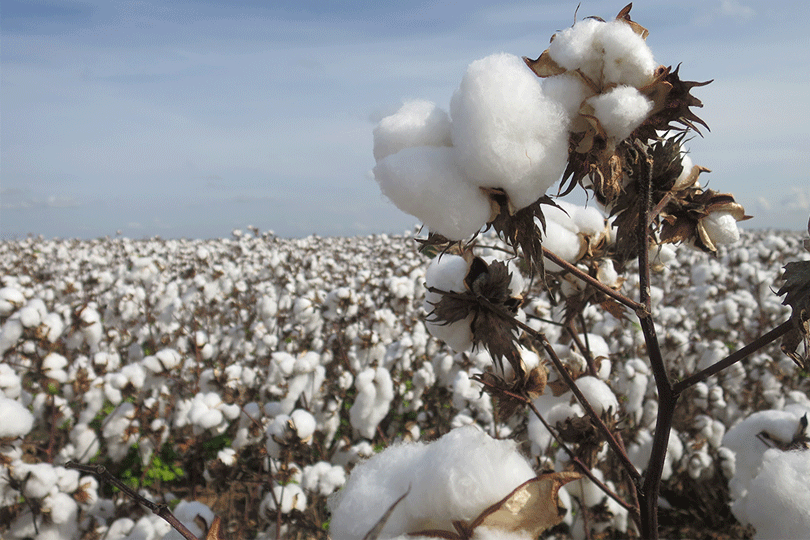By Justin Walker
Communications Specialist
The 2017 Replicated Agronomic Cotton Evaluation (RACE) results from South, East and Central Texas have been reported and show how the latest transgenic varieties performed.
“Our data show transgenic varieties accounted for 99 percent of the state cotton acreage in 2017,” Dr. Gaylon Morgan, AgriLife Extension state cotton specialist, told AgriLife Today. “Texas has been at over 90 percent transgenic varieties for a decade, but the traits being utilized are being stacked with more insect and herbicide tolerant traits.”
In 2017, 64 percent of the cotton varieties in Texas were XtendFlex. This number was up 10 percent from 2015 and experts expect it to increase in the coming year. The Enlist cotton came in at three percent, but Morgan expects that to be higher in 2018.
There were 17 RACE trials planted this year across the Lower Rio Grande Valley, Blacklands, South Texas/Wintergarden and Upper Coastal regions.
“Yields across the Lower Rio Grande Valley and Coastal Bend were very good this season, with good early season moisture and some timely rains during the season,” Morgan said. “Also, favorable weather at harvest helped maintain yields, unlike in the Central and Upper Gulf Coast and Southern Blacklands where some received heavy rainfall as harvest approached.”
Weather was not so favorable in other areas. Both the Upper Gulf Coast and the Southern Blacklands trials were impacted by Hurricane Harvey.
“In the Upper Gulf Coast, higher-than-average yields were expected, but yield and fiber quality were significantly impacted by Hurricane Harvey. In the Southern Blacklands, low yields were primarily due to erratic rainfall during late-season, but Hurricane Harvey negatively impacted harvestable lint and fiber quality as well.”
Average non-irrigated yields for the trials ranged from 761 pounds per acre in Williamson County to 1,981 pounds per acre in Nueces County. Average irrigated yields ranged from 753 pounds per acre in Burleson County to 2,369 pounds per acre in Medina County.
The full results, including yield, fiver quality and estimated lint value, of all the trials are available at http://cotton.tamu.edu.
Morgan noted farmers should gather as much unbiased data—yield and fiber quality—to help determine what seed variety to plant.
“Some varieties are widely adapted, while others perform well under more specific growing conditions and situations,” Morgan said.
For more information on the study, contact Morgan at gdmorgan@tamu.edu or 979-845-2425.

